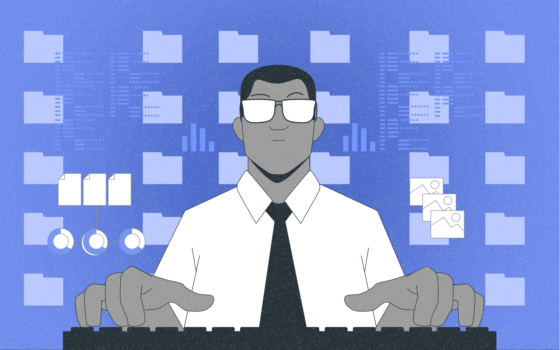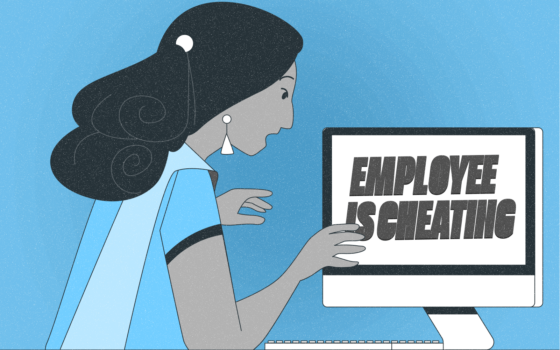Technical Interview
Understanding Technical Interviews: A Comprehensive Guide
In the ever-evolving landscape of talent acquisition, technical interviews have become a crucial component of the hiring process for many organizations, particularly those in the technology sector. These specialized interviews are designed to assess a candidate's technical skills, problem-solving abilities, and overall fit for roles that require specific technical expertise. As the demand for skilled technical professionals continues to grow, mastering the art of conducting effective technical interviews has become increasingly important for HR professionals and hiring managers alike.
The Purpose and Importance of Technical Interviews
Technical interviews serve several critical purposes in the hiring process. Firstly, they allow employers to evaluate a candidate's technical knowledge and skills in a practical, hands-on manner. This is particularly important in fields such as software development, engineering, data science, and other technology-driven roles where theoretical knowledge alone is not sufficient.
Secondly, technical interviews provide insights into a candidate's problem-solving approach, critical thinking skills, and ability to work under pressure. These qualities are often just as important as technical expertise in determining a candidate's potential for success in a given role.
Lastly, technical interviews can help assess a candidate's ability to communicate complex technical concepts effectively. This is crucial in roles that require collaboration with non-technical team members or clients.
Types of Technical Interviews
There are several types of technical interviews, each designed to assess different aspects of a candidate's abilities. Some common types include:
1. Coding Interviews
Coding interviews are perhaps the most well-known type of technical interview. They typically involve the candidate solving programming problems in real-time, either on a whiteboard or using a computer. These interviews assess a candidate's coding skills, algorithm knowledge, and problem-solving abilities.
2. System Design Interviews
System design interviews are often used for more senior positions. They involve asking candidates to design a large-scale system or architecture, such as a social media platform or an e-commerce website. These interviews evaluate a candidate's ability to think at a high level and consider various trade-offs in system design.
3. Take-Home Assignments
Some companies opt for take-home assignments, where candidates are given a project to complete on their own time. This approach allows candidates to showcase their skills in a more relaxed environment and can provide a more realistic assessment of their work quality.
4. Technical Discussion Interviews
These interviews involve in-depth discussions about technical topics related to the role. They may include questions about a candidate's past projects, technical decisions they've made, and their opinions on various technologies or methodologies.
Preparing for a Technical Interview: Tips for Candidates
For candidates, preparing for a technical interview can be a daunting task. Here are some key tips to help candidates put their best foot forward:
1. Review Fundamentals
Regardless of the specific role, it's crucial to have a solid grasp of fundamental concepts in your field. For software developers, this might include data structures, algorithms, and common design patterns. For other technical roles, it could involve reviewing key principles and methodologies relevant to the position.
2. Practice Problem-Solving
Many technical interviews involve solving problems on the spot. Practicing with coding challenges, brain teasers, or design problems can help candidates become more comfortable with this format. Websites like LeetCode, HackerRank, and CodeSignal offer a wealth of practice problems.
3. Brush Up on Recent Projects
Candidates should be prepared to discuss their recent work in detail. This includes being able to explain technical decisions, challenges faced, and lessons learned from past projects.
4. Stay Current with Industry Trends
Technology evolves rapidly, and interviewers often appreciate candidates who demonstrate awareness of current trends and emerging technologies in their field.
5. Improve Communication Skills
Being able to articulate technical concepts clearly is crucial. Candidates should practice explaining complex ideas in simple terms and be prepared to discuss their thought process as they work through problems.
Conducting Effective Technical Interviews: Best Practices for Interviewers
For HR professionals and hiring managers, conducting effective technical interviews requires careful planning and execution. Here are some best practices to consider:
1. Define Clear Objectives
Before the interview, clearly define what skills and qualities you're looking to assess. This will help you structure the interview and ensure you're gathering relevant information.
2. Standardize the Process
To ensure fairness and consistency, develop a standardized set of questions or problems for each role. This allows for easier comparison between candidates and helps mitigate bias.
3. Create a Comfortable Environment
Technical interviews can be stressful for candidates. Try to create a welcoming atmosphere that allows candidates to perform at their best. This might include providing clear instructions, offering water, and giving candidates a moment to collect their thoughts before diving into challenging questions.
4. Use Real-World Scenarios
When possible, base interview questions on real problems your team has faced or might face in the future. This provides context for the candidate and gives you insight into how they might perform on the job.
5. Assess Soft Skills
While technical skills are crucial, don't forget to evaluate soft skills such as communication, teamwork, and adaptability. These qualities can be just as important for a candidate's success in the role.
6. Provide Feedback and Support
During the interview, offer guidance if a candidate gets stuck. The goal is not to trick candidates but to assess their problem-solving abilities and how they handle challenges.
Common Challenges in Technical Interviews
Despite their importance, technical interviews are not without challenges. Some common issues include:
1. Bias
Unconscious bias can creep into technical interviews, potentially leading to unfair assessments. This can be particularly problematic in fields where certain demographics are underrepresented.
2. Artificiality
The high-pressure environment of a technical interview may not accurately reflect a candidate's day-to-day performance. Some excellent professionals may struggle in interview settings due to nervousness or time constraints.
3. Overemphasis on Specific Skills
There's a risk of focusing too heavily on specific technical skills at the expense of other important qualities, such as problem-solving ability, creativity, or cultural fit.
4. Keeping Up with Rapid Technological Changes
As technology evolves rapidly, it can be challenging for interviewers to stay current and ask relevant questions, especially if they're not actively working in the technical role they're hiring for.
Innovative Approaches to Technical Interviews
To address some of these challenges, many companies are exploring innovative approaches to technical interviews:
1. Pair Programming
In this approach, the candidate works alongside an existing team member on a real problem. This provides insight into how the candidate collaborates and solves problems in a more realistic setting.
2. Project-Based Assessments
Some companies are moving away from traditional coding interviews in favor of more comprehensive project-based assessments. These might involve giving candidates a small project to complete over a few days, allowing them to showcase their skills in a less pressured environment.
3. Technical Presentations
Candidates might be asked to prepare and deliver a presentation on a technical topic of their choice. This can provide insights into their communication skills and depth of knowledge in specific areas.
4. Virtual Reality Interviews
As technology advances, some companies are experimenting with conducting technical interviews in virtual reality environments. This can provide a unique way to assess a candidate's skills and adaptability.
The Role of AI in Technical Interviews
Artificial Intelligence is increasingly playing a role in the technical interview process. Some ways AI is being utilized include:
1. Automated Code Assessment
AI-powered tools can analyze code submitted by candidates, assessing factors like efficiency, readability, and adherence to best practices.
2. Chatbot Interviewers
Some companies are experimenting with AI chatbots that can conduct initial technical screenings, asking candidates basic technical questions and evaluating their responses.
3. Predictive Analytics
AI algorithms can analyze data from past hires to identify patterns and predict which candidates are most likely to succeed in a given role.
Ethical Considerations in Technical Interviews
As with any aspect of the hiring process, there are important ethical considerations to keep in mind when conducting technical interviews:
1. Fairness and Inclusivity
Ensure that your technical interview process is fair and inclusive to candidates from all backgrounds. This might involve providing accommodations for candidates with disabilities or ensuring that interview questions don't unfairly advantage candidates from certain educational or cultural backgrounds.
2. Transparency
Be transparent about the interview process and what candidates can expect. This includes being clear about the types of questions or problems that will be asked and how candidates will be evaluated.
3. Data Privacy
If you're using AI tools or collecting data during the interview process, ensure that you're complying with relevant data protection regulations and respecting candidates' privacy.
4. Avoiding Exploitation
Be cautious about asking candidates to complete extensive projects or assignments as part of the interview process without compensation. This can be seen as exploitative, especially if the work could potentially be used by the company.
The Future of Technical Interviews
As technology continues to evolve and the job market becomes increasingly competitive, the landscape of technical interviews is likely to change. Some trends we might see in the future include:
1. Increased Use of AI and Machine Learning
AI-powered tools are likely to play an even larger role in screening candidates and assessing technical skills.
2. Greater Emphasis on Soft Skills
As technical skills become increasingly automated, there may be a greater focus on assessing soft skills such as creativity, adaptability, and emotional intelligence during technical interviews.
3. More Holistic Assessments
We may see a move towards more comprehensive assessments that evaluate a candidate's technical skills, problem-solving abilities, and cultural fit through a combination of different interview formats and assessment tools.
4. Remote and Asynchronous Interviews
With the rise of remote work, we're likely to see more technical interviews conducted remotely, potentially even asynchronously to accommodate different time zones and work schedules.
Conclusion
Technical interviews play a crucial role in identifying and hiring top technical talent. While they present unique challenges, they also offer valuable opportunities to assess a candidate's skills, problem-solving abilities, and potential fit within an organization. By understanding the various types of technical interviews, implementing best practices, and staying aware of emerging trends and ethical considerations, HR professionals and hiring managers can conduct effective technical interviews that benefit both the organization and the candidates.
As the techincal landscape continues to evolve, so too will the nature of technical interviews. Staying informed about industry trends, emerging technologies, and innovative interview techniques will be crucial for organizations looking to attract and retain top technical talent in an increasingly competitive job market.
Ultimately, the goal of any technical interview should be to create a fair, comprehensive, and insightful assessment process that identifies candidates who not only possess the necessary technical skills but also have the potential to thrive and contribute meaningfully within the organization. By continually refining and adapting their approach to technical interviews, companies can ensure they're well-positioned to build strong, diverse, and talented technical teams capable of driving innovation and success in the years to come.


